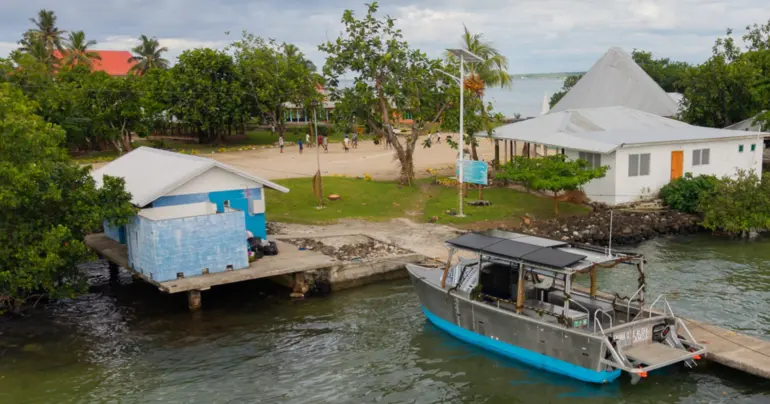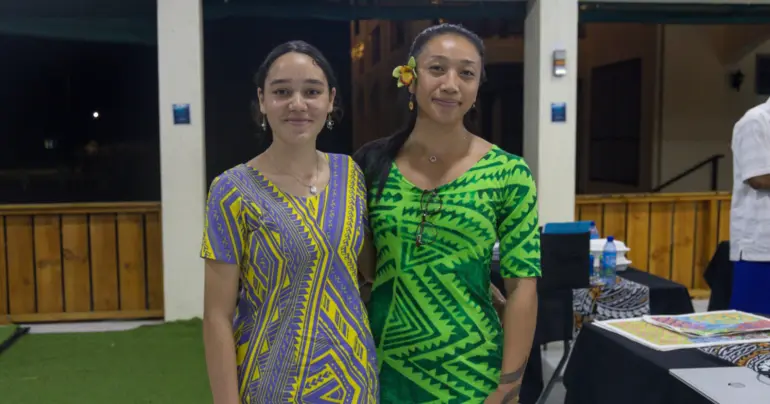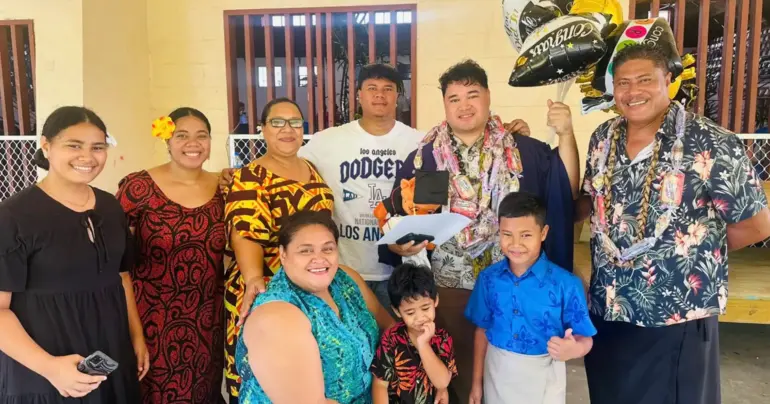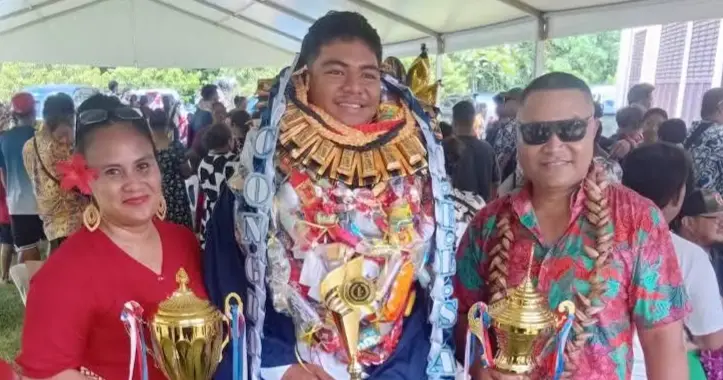M.E.S.C. comments cautiously free wifi project
 By Sapeer Mayron
•
01 October 2020, 8:00AM
By Sapeer Mayron
•
01 October 2020, 8:00AM
The Ministry of Education, Sports and Culture (M.E.S.C.) has come out in support of a controversial free school wifi project but say browsing security is their top concern.
In a statement, M.E.S.C. Chief Executive Officer Afamasaga Dr. Karoline Afamasaga-Fuata’i said the ‘Free Wi-Fi for Schools’ project is a “great prospect” for schools across Samoa.
“However, the absence of appropriate security solutions for content filtering (firewall) is a major concern and a risk for our schools, and particularly our students,” Afamasaga said.
She added that with “smart solutions” this problem can be easily resolved, calling it a “collective responsibility” to create safe learning environments.
The project was launched last week by Fa’atuatua i le Auta Samoa ua Tasi (F.A.S.T.), E3 Samoa Trust and Netvo Samoa and is intended to connect all of Samoa’s schools to a free internet connection.
It drew the Government’s concern, with Minister of Communication and Information Technology (M.C.I.T.), Afamasaga Rico Tupa’i saying the project was “illegal” and the group behind it did not “follow the right processes.”
But with schools leaning more and more on the internet for access to information, learning and teaching resources, the Ministry is unlikely to turn down a free connection.
In the wake of the measles epidemic and the COVID-19 pandemic, M.E.S.C. has been urgently fitting schools out to use video conferencing and online class management systems, so that learning can continue from home in the “worst case scenario,” Afamasaga Dr. Karoline said.
She said having a secure internet connection that defends students against inappropriate material online is “most critical.
“This has been achieved through multiple layers of security (firewalls) which provide content filtering and cyber-security protection.
“Students should be able to safely explore how the internet offers an amazing way to collaborate with others worldwide and learn at their own pace, while staying safe through employing strategies such as content filters and training people to know the difference between inappropriate content and positive online connections.”
Afamasaga said M.E.S.C. is working to train teachers on best internet practice, and is improving the curriculum to try and keep pace with what technology is capable of.
Schools have had connections before, through the Samoa National Broadband Highway and the SchoolNET projects, but as time goes on the technology wears out.
“Technology evolves at a fast pace and hardware can become obsolete in a matter of months and a few years, therefore some schools have experienced different levels of downtime and the absence of the connectivity given their geographical location,” Afamasaga said.
To content with some of these issues, the Ministry linked up with both Digicel and Vodafone (with support from the United Nations) to connect students with free SIM cards, which managed paid access to the internet.
This should have helped students access the internet at no personal cost while they had to stay home from school in the early days of the lockdown, and in case it should happen again.
“The intention of these partnerships with the private sector was to empower the students and teachers during a School Closure to securely access learning at zero data using their personal devices or any compatible mobile device at their disposal,” said Afamasaga.
The F.A.S.T. and E3 Samoa Trust wifi project was launched earlier this month with ten Savaii primary schools now linked up to the internet through a NetVo and Kacific Broadband Satellite Company connection.
When all of Savaii’s schools are connected, the project will move across to Manono, Apolima and Upolu.
NetVo Chief Operations Officer and founder of the E3 Samoa Trust Togisala Tony Leota said school principals, village school committees and the relevant Ministries were consulted and gave approval before the project began.
As well as the Minister of M.C.I.T., Prime Minister Tuilaepa Dr. Sailele Malielegaoi cast shadows over the project’s processes last week.
“I am happy to see that they are helping out […] But the thing is, they can't install these wifis [sic] without consulting the Office of the Regulator, so they can come in and assess the work that they are doing.
“What if something goes wrong and it will burn down a school?”
F.A.S.T. Chair Lauli Leautea Schmidt told the Samoa Observer he was disappointed in the Prime Minister’s comments.
“Enough of the dirty politics. Let's concentrate on delivering on the project as it is for the people,” he said last week.
"Whatever he (Tuilaepa) says, we don't want to answer him back, but we stay in our vision and our mission, and appreciate what NetVo has done.”
Tags
 By Sapeer Mayron
•
01 October 2020, 8:00AM
By Sapeer Mayron
•
01 October 2020, 8:00AM











